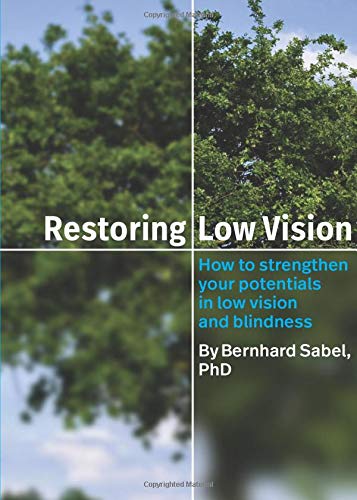About us
Scientific Research
2005
Leonardo DaVinci Award
Prof. Sabel, together with Torsten Wiesel (Nobel Laureate), chairs the symposium “Restoration of Vision after Brain Damage” at the “VISION 2005” conference of the Royal National Institute of the Blind (RNIB) in London. Prof. Sabel receives the “Leonardo DaVinci Award” of the World Organization for the Achievement of Human Potential, Philadelphia (USA).
1992 till today
Otto-von-Guericke-University Magdeburg
Dr. Bernhard Sabel becomes a professor at the Otto-von-Guericke-University in Magdeburg (Germany), where he founds the Institute of Medical Psychology and a research laboratory for visual restoration. Here he applies his findings from animal studies to patients suffering from vision loss due to optical neuropathy, glaucoma or stroke.
1991
Harvard Medical School
Dr. Bernhard Sabel works as a guest scientist at the Clinic of Neurology at Harvard Medical School (Massachusetts General Hospital) in Boston (USA). Here he researches the molecular fundamentals of brain plasticity as well as growth inducing molecules, which improve the survival of brain cells after brain damage.
1987
Medical Faculty of the Ludwig-Maximilians-University Munich
Dr. Bernhard Sabel works as a research assistant under Prof. Dr. Ernst Pöppel at the Medical Faculty of the Ludwig Maximilian University in Munich (Germany). Here he discovers the importance of residual vision through studies on mice with partially damaged optic nerve. He discovered that the visual ability could recover even if only about 20 percent of the neurons in the retina of the eye were preserved.
1984 – 1986
Massachusetts Institute of Technology (MIT)
As a research assistant of Prof. Dr. Gerald Schneider at Massachusetts Institute of Technology (MIT) in Cambridge (USA) Dr. Sabel discovers that new neuronal connections (“axons”) can form in the visual system of a hamster, when a growth-promoting drug is used.
1978 – 1982
The beginning of Research in the USA
Bernhard Sabel begins his work at the Clark University in Worcester, Massachusetts (USA) with research on brain plasticity, he works with Donald G. Stein, the leading researcher in neuroplasticity after brain damage. In 1982 Bernhard Sabel obtained his doctorate in psychology with a thesis on the topic of treating brain damage with medication.
Information for Our Patients
2019

The patient guide named “Restoring Low Vision”, written by Prof. Sabel, is now available in German. (To Amazon) The book deals with the medical and physiological aspects of vision loss and blindness and was written for affected patients. The book summarizes the medical and psychological insights and contains many practical recommendations for patients.
2016 till today
Book Publication
Prof. Sabel’s patient guide with the title “Restoring Low Vision” is published in English on August 28th 2016. (To Amazon)
2014 till today
Savir-Center Magdeburg
The Savir treatment center in Magdeburg is opened in 2014.
2010 – 2012
From Vision Training to Current Stimulation
Prof. Sabel’s research team has published new findings suggesting that the residual vision of patients with damaged optic nerve or glaucoma can be activated with alternating current. This important medical success allows a dramatic shortening of the vision improvement treatment from 6 months of visual training to only 10 days.
Throughout the years, Prof. Sabel has received several prizes and awards for his scientific discoveries and their market launch: 2011 Start-up Beacon Award; Federal Ministry of Economics and Technology 2009 Venture Lounge Berlin; 1st place 2008: Science4Life, 10th nationwide business plan competition: Frankfurt; 3rd place. Translated with www.DeepL.com/Translator (free version)
2000
Nova Vision AG (Magdeburg)
Prof. Sabel establishes the NovaVision AG (Magdeburg), which offers patients visual training to treat visual impairments. The company opens a branch in Boca Raton (USA) in 2003. In addition to that, the Sabel Group publishes papers concerning vision loss and visual rehabilitation. Prof. Sabel receives the “Cinquegrani“ prize from the Italian board of science “Consiglio Nazionale delle Ricerche“ (CNR) for the best innovation in communication and information technology in Florence (Italy).